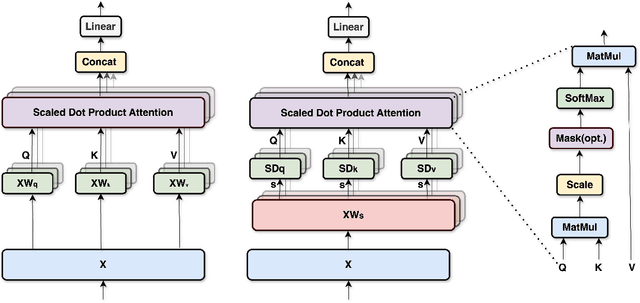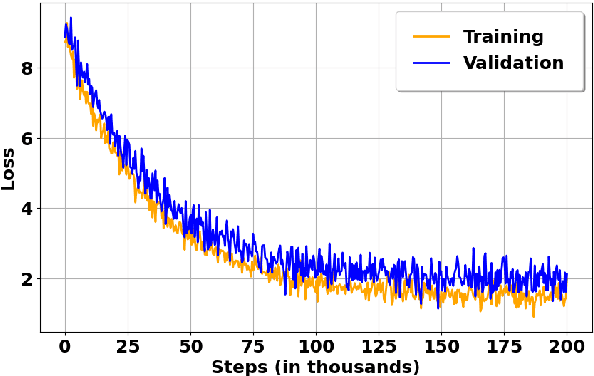Does Self-Attention Need Separate Weights in Transformers?
Paper and Code
Nov 30, 2024



The success of self-attention lies in its ability to capture long-range dependencies and enhance context understanding, but it is limited by its computational complexity and challenges in handling sequential data with inherent directionality. This work introduces a shared weight self-attention-based BERT model that only learns one weight matrix for (Key, Value, and Query) representations instead of three individual matrices for each of them. Our shared weight attention reduces the training parameter size by more than half and training time by around one-tenth. Furthermore, we demonstrate higher prediction accuracy on small tasks of GLUE over the BERT baseline and in particular a generalization power on noisy and out-of-domain data. Experimental results indicate that our shared self-attention method achieves a parameter size reduction of 66.53% in the attention block. In the GLUE dataset, the shared weight self-attention-based BERT model demonstrates accuracy improvements of 0.38%, 5.81%, and 1.06% over the standard, symmetric, and pairwise attention-based BERT models, respectively. The model and source code are available at Anonymous.
 Add to Chrome
Add to Chrome Add to Firefox
Add to Firefox Add to Edge
Add to Edge